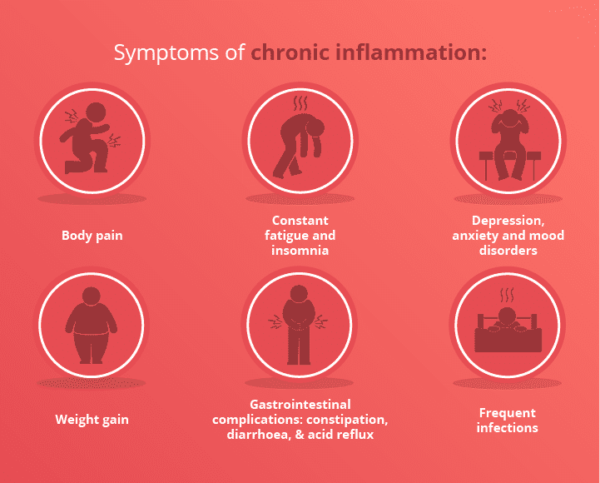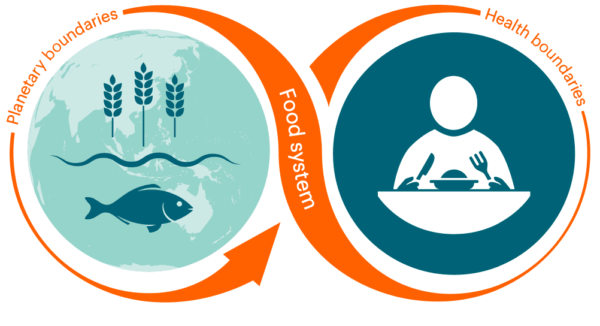
What is the foundational idea behind a plant-based diet? The author Michael Pollan once famously said, “eat food, not too much, mostly plants.” Plant-based does not mean vegetarian or vegan; it is defined as eating a diet mostly consisting of fruits, vegetables, beans, whole grains, nuts, seeds, and legumes. If you are following a plant-based diet, you can occasionally consume meat and dairy products; this is sometimes referred to as a being a ‘flexitarian’.
Some benefits of a plant-based diet
- Reduces inflammation thus decreasing your risk for developing chronic diseases
- Contributes to healthy blood pressure, cholesterol, and blood sugar levels
- Contributes to lowering greenhouse gas emissions by not supporting the meat and dairy industries
Let’s delve into each of these perks in a little more detail.
The Science of Inflammation
Inflammation can be acute or chronic. Acute inflammation is a necessary part of healing as your body works to repair and heal after an injury or infection. This process allows for fresh blood and healing cells to be delivered to the affected area, which speeds up the healing process. Acute inflammation should only last a few days; issues arise when the body is not able to stop the inflammatory process.
Enter chronic inflammation. This is defined as a state where the body either cannot manage the initial injury or infection or it continues to think there is damage present. With chronic inflammation, surrounding tissues and structures of the body can actually be disrupted, contributing to conditions such as chronic pain, irritable bowel syndrome (IBS), and overall dysfunction.
Eating a plant-based diet can manage chronic inflammation in two ways. First, whole fruits and vegetables do not elicit inflammation in the body when they are consumed, and second they have also been shown to decrease existing inflammation that may be present.
In a comprehensive review of 46 studies, researchers investigated the blood levels of a protein marker called C-reactive protein (CRP), which is indicative of the amount of inflammation in the body. The level of this protein is often used to determine a person’s risk for stroke, heart attack, etc. Interestingly, the researchers found the CRP levels were consistently higher in people who ate a “Western” diet, rich in meat and animal products, compared to those who ate a plant-based diet. Other studies have shown that CRP levels can actually decrease after starting a plant-based diet.

Blood Pressure, Cholesterol, and Blood Sugar
Heart disease is consistently ranked as a leading cause of death for people in the United States. Underlying heart disease are issues such as high and/or uncontrolled blood pressure, high cholesterol, and high blood sugar/uncontrolled diabetes. These issues contribute to the risk of having a heart attack, stroke, brain aneurysm, etc.
Diet is a significant contributor to all three of these factors and research has consistently shown that changing your diet can lower blood pressure, cholesterol and normalize blood sugar levels. It is important to always follow your doctor’s recommendations if you have any of these conditions as medication is also an important management technique.
Consuming a plant-based diet means you are eating foods with less fat, less toxins, and more fiber, all of which contribute to good heart and blood vessel health. A physician named Dr. Ornish recently published a study that included people with moderate to severe heart disease. Their treatment consisted solely of diet and lifestyle changes. After one month, participants demonstrated improved blood flow to the heart, and a 90% overall reduction in chest pain. After a year, blood vessels that had been initially blocked had actually re-opened, to a degree. The diet the participants were instructed to follow was plant-based.
The Environmental Impact
There is an increasing body of research that is emerging in regard to dietary choices and their impact on the environment. Recently, the EAT-Lancet Commission was created, consisting of 37 scientists from 16 countries, to come up with guidelines for planetary diets.
A planetary diet is defined as one that is beneficial for the individual and the environment, which is also sustainable long-term and likely to be adopted by the largest amount of people. A leading scientist from the commission stated, “Global food production threatens climate stability and ecosystem resilience. It constitutes the single largest driver of environmental degradation and transgression of planetary boundaries.” Evidently, there is a need for human beings to change our diets so that we are not contributing to greenhouse gas emissions and global warming, amongst other climate change concerns.
The summary statement of this conference is as follows, “Transformation to healthy diets by 2050 will require substantial dietary shifts. Global consumption of fruits, vegetables, nuts and legumes will have to double, and consumption of foods such as red meat and sugar will have to be reduced by more than 50%. A diet rich in plant-based foods with fewer animal source foods confers both improved health and environmental benefits.

All in all, there are many benefits to a plant-based diet. The fact that it is flexible and allows for occasional consumption of meat and dairy products is alluring to most people. Ideally, in order for a dietary change to have the most impact, it needs to be adopted by a large number of people and it needs to be sustainable long-term; a plant-based diet meets both of these requirements.
Catherine Madsen, PT, DPT https://charmaustin.com/why-charm/the-charm-team/catherine-madsen/
Sources:
https://www.pcrm.org/health-topics/heart-disease
https://www.forksoverknives.com/wellness/inflammation-101/
https://www.everydayhealth.com/diet-nutrition/best-worst-diet-plans-environment/




